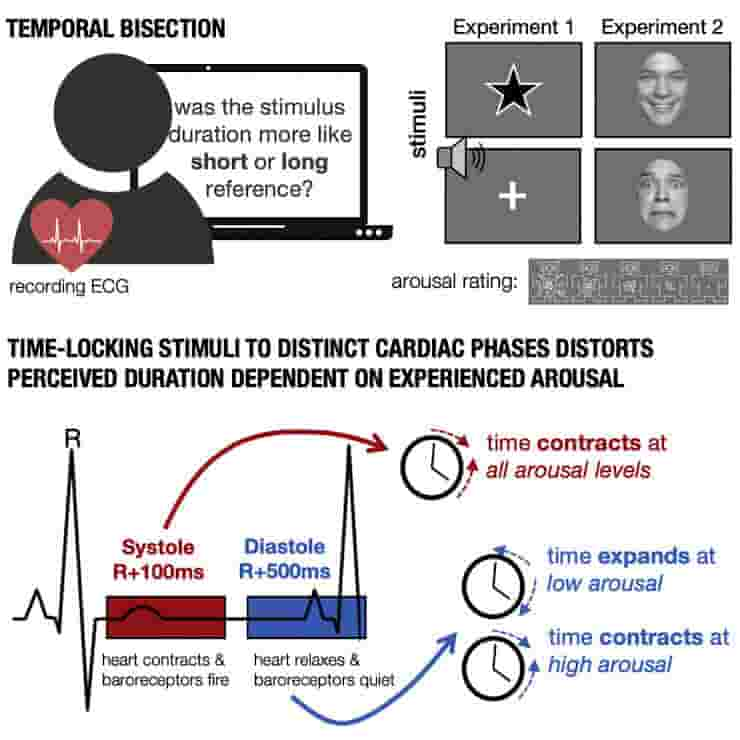Your perception of time is not continuous and may stretch or contract with each heartbeat, new research from Cornell University suggests.
“Time is a dimension of the universe and a core basis for our experience of self. Our research shows that the moment-to-moment experience of time is synchronized with, and changes with, the length of a heartbeat,”
said psychology professor Adam K. Anderson.
When research has shown that thoughts and emotions can distort our sense of time, making it fly or crawl, time perception has typically been tested over longer intervals. Such findings, according to Anderson, tend to reflect how we think about or estimate time rather than our direct experience of it in the present moment.
Heart Rate Dynamics
The researchers wanted to know if our perception of time is related to physiological rhythms, so they focused on natural variability in heart rates. On average, the cardiac pacemaker ticks, but each interval between beats is slightly longer or shorter than the previous one, similar to a secondhand clicking at different intervals.
In a novel experiment, the team took advantage of that variability. Electrocardiography, or ECG, was used to monitor 45 study participants, ages 18 to 21, who had no history of heart problems.
The ECG was linked to a computer, which enabled brief tones lasting 80-180 milliseconds to be triggered by heartbeats. Study participants reported whether tones were longer or shorter relative to others.
Temporal Wrinkles
The findings revealed what the researchers referred to as “temporal wrinkles.”
The tone was perceived as longer when the heartbeat preceding it was shorter. When the previous heartbeat was longer, the duration of the sound seemed shorter.
“These observations systematically demonstrate that the cardiac dynamics, even within a few heartbeats, is related to the temporal decision-making process,”
the authors wrote.
Brain Influence
The study also revealed that the brain influences the heart. Participants in the study focused their attention on the sounds after hearing them. That “orienting response” altered their heart rate, influencing their perception of time.
“The heartbeat is a rhythm that our brain is using to give us our sense of time passing,” Anderson said. “And that is not linear; it is constantly contracting and expanding.”
According to the researchers, the link between time perception and the heart suggests that our momentary perception of time is rooted in bioenergetics, which helps the brain manage effort and resources based on changing body states such as heart rate.
The research shows that the heart regulates our experience of the present in subsecond intervals too brief for conscious thoughts or feelings.
“Even at these moment-to-moment intervals, our sense of time is fluctuating,”
Anderson said.
From beat to beat, the heart’s pure influence contributes to the sense of time passing.
Reference:
- Sadeghi S, Wittmann M, De Rosa E, Anderson AK. Wrinkles in subsecond time perception are synchronized to the heart. Psychophysiology. 2023 Mar 2:e14270. doi: 10.1111/psyp.14270.
Last Updated on September 20, 2023

